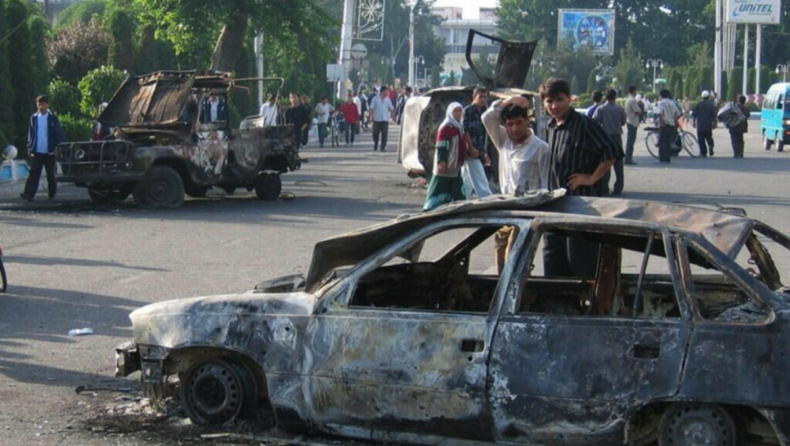Mass protests broke out in the Karakalpakstan region of Uzbekistan condemning the government’s plan to restrict the region’s autonomy.
Highlights:
- The Uzbekistan government plans to restrict Karakalpakstan’s autonomy.
- The government’s crackdown on mass protests resulted in 18 deaths.
- UN, US urge probe into the unrest.
Deadly clashes and mass protests broke out against the Uzbekistan President’s decision to amend the constitution relating to the Karakalpakstan region’s autonomy. Thousands took to the streets of Nukus condemning the draft made by President Shavkat Mirziyoyev to remove the region’s right to secede. However, on July 2, the President withdrew his decision and said that the government will abandon the plans to amend the constitution.
A staggering 18 people were killed, and 243 people were injured after the government ordered a crackdown to curb the protests. Mirziyoyev has declared a month-long state of emergency in the autonomous province. Protestors pitted against security forces and tried to capture local government buildings resulting in one of the worst unrests in 20 years.
The history of Karakalpaks:
The Qaraqalpaqs or Karakalpaks, are a Turkic ethnic group native to the northwest region of Uzbekistan, Karakalpakstan. Derived from two words, qara means ‘black’, and kalpak translates to ‘hat’, signifying the traditional headgear of the community. Around 500,000 out of the 620,000 worldwide live in the Republic of Karakalpakstan. Like Uzbeks, the Karakalpak are a Turkic people closer to Kazakhs, differing linguistically and culturally.
The Karakalpakstan region was an autonomous area in 1925 within the Russian Soviet Federative Socialist Republic. Later in 1936, it became a part of Uzbekistan as Karakalpak ASSR. Post the withdrawal of the Soviet Union in 1992, Uzbekistan became independent, and the Karakalpak ASSR was re-established as the Republic of Karakalpakstan. The province bordering the Aral sea and Kazakhstan has the right to secede after holding a nationwide referendum.
The Uzbekistan Unrest:
Following the decision to amend the constitution related to the autonomy of the Karakalpak region, thousands of demonstrators stormed into the capital city expressing distress. At least 18 were killed, and over 243 were wounded when the authorities tried to disperse the protests. President Mirziyoev said the actions of the protestors were destructive actions in Nukus, the regional capital, attacking security personnel, starting fires, and pelting stones. According to a BBC report, 516 people were arrested following the unrest but were later released.
The outbreak was triggered following the plans to curtain the Karakalpak region’s autonomy. Deadly clashes occurred between the protestors and the law-enforcement authorities leading the President to visit the region twice over the week. A month-long state emergency was declared by the President starting July 3. The police and army patrol the streets of Nukus, and the internet is shut down in the region.
US, UN urges probe:
Following the deadly clashes at the mass protests in Uzbekistan, UN human rights chief Michelle Bachelet asked the Uzbek authorities to investigate its cause. She said, “The reports we have received about serious violence, including killings, during the protests are very concerning. I request the authorities to exercise utmost restraint.” Further, Ned Price, the US State Department spokesman, demanded the Uzbek authorities follow a conclusive and transparent investigation into the clash.
The European Union urged an independent investigation into the violent incidents in Karakalpakstan. The statement said that the European Union is following the developments closely and regrets the casualties. It further added that the EU urges the Uzbek authorities to pledge human rights and the freedom of expression.
According to a BBC report, a few rallies are taking place in many locations, and the protests have stabilized. However, the region faces a dangerous ethnic conflict between the Uzbeks and the Karakalpaks spinning the whole situation out of control.












